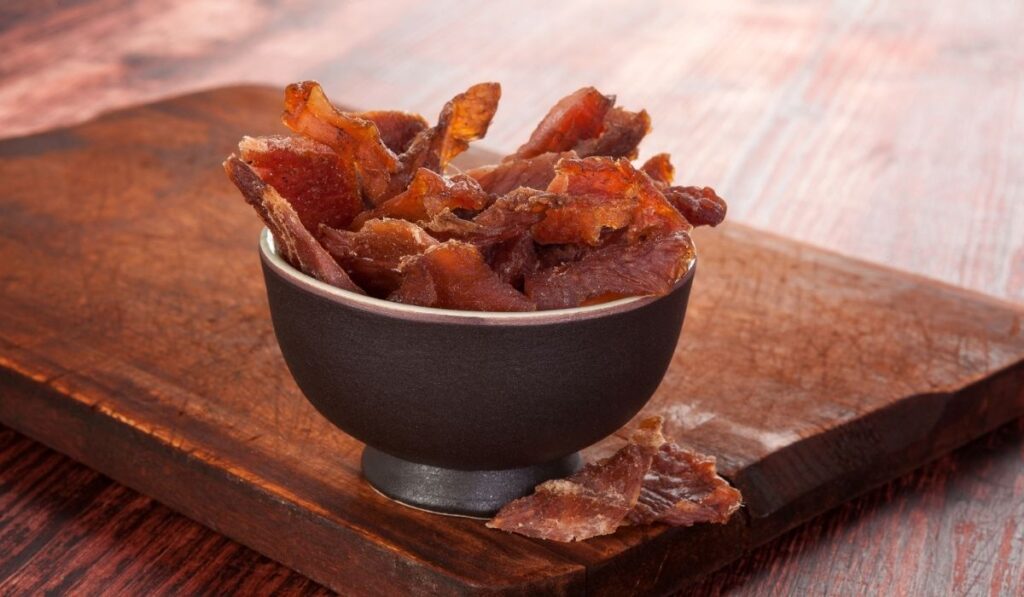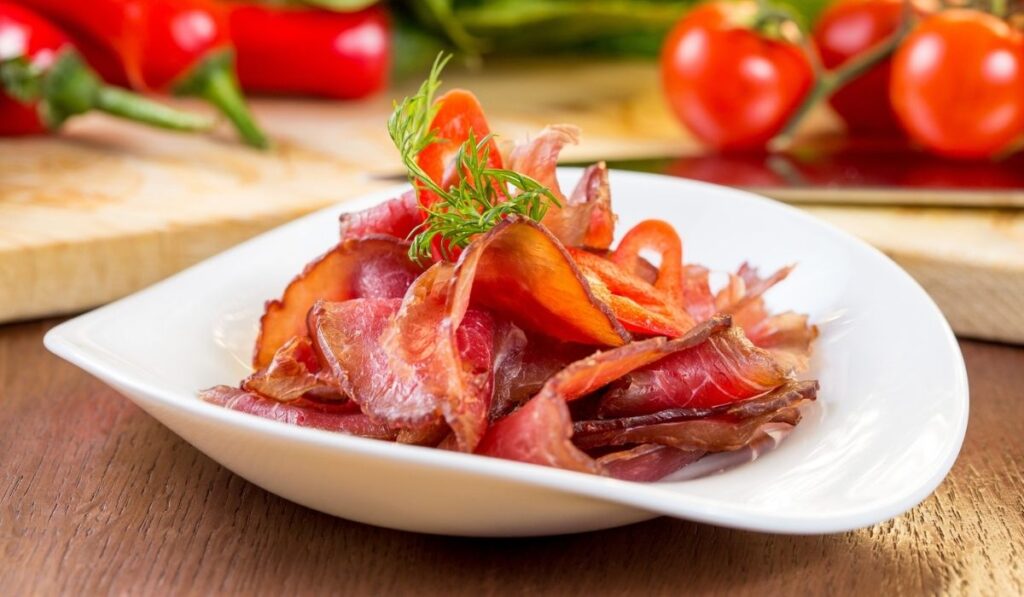There are lots of foods that can easily get wedged between your teeth and gums, such as seeds, leafy greens, and popcorn. You’re almost certain to feel an uncomfortable sensation in your mouth when this happens. Jerky is essentially animal muscle (usually beef) that has been seasoned and dried, and because it can be tough, your jaw and chewing muscles work extra hard on it. If jerky gets wedged between your teeth, can it cause any damage?
The toughness of jerky means you have to chew harder & longer to get it ready to swallow. Tough jerky can damage your teeth directly, leading to chips or cracks, but the repeated and intense chewing can also lead to jaw and muscle soreness. A little is OK, but eating jerky a lot can be a problem.
If you feel pain in your teeth while eating jerky, it’s best to leave it for a couple of days. You can then try another time with a small piece. If you still experience the pain, you may have to stay off jerky for a longer time. And if you experience incessant pain in your tooth after chewing or biting down on jerky, you should contact your dentist for a thorough evaluation.
How Does Eating Jerky Impact Your Teeth?

Jerky can be a tasty snack, but it can also cause tooth aches for some. If you feel pain during or after chewing jerky made from beef or another type of meat and wonder why, here are some possible explanations:
Chewing Hard for a Long Time
Jerky is tough and chewy, so it requires a lot more work to chew it as compared to softer foods. You need to chew on jerky for a long time before you can swallow a slice. And this chewing is hard on teeth, putting pressure on the ligaments within the tooth socket, and that can lead to pain.
Prolonged physical stress on teeth may result in the symptoms of temporomandibular joint disorders (TMJ) such as jaw pain, facial pain, trouble opening the mouth, and pain when chewing or biting.
Biting
You need a reasonable amount of force to bite into a cut of jerky. Moreover, to finish one serving, you need to bite quite a few pieces. Biting into any tough food can cause tooth pain, especially if your gums are exposed or if you have a decaying tooth.
Because of how tough jerky can be, actually biting into it may cause tooth damage if you’re not careful.
It Gets Wedged Between the Teeth
Beef jerky is sticky and thick, so as you chew on a piece repeatedly, it’s not uncommon for some of it to get wedged between your teeth. This can be irritating to your gums and cause pain.
If a slice of jerky gets stuck in a decaying area of your tooth, you’ll definitely feel pain and, in some cases, pressure. And, like popcorn husks, these pieces may get wedged in such a way that normal oral hygiene (brushing/flossing) don’t remove it easily. Just add it to the list of oral complications by jerky!
Sugar Content
Some brands of jerky are flavored or glazed with a reasonable amount of added sugar. Eating these types of jerky regularly without brushing your teeth could lead to tooth decay, since they have so much sugar. This can also cause pain or irritation in an existing cavity.
How to Minimize the Negative Effects of Jerky on Your Teeth

Even though there is no scientific research on why beef jerky tends to cause tooth pain, here are some steps to help you reduce the impact of beef jerky on your teeth:
- Consider cooking your own beef jerky. That way, you can control the cooking time and determine which ingredients you want to include and in what quantities.
- Sprinkle water on the jerky to soften it then put it in the microwave for some seconds until you get your desired consistency.
- If you’re buying jerky, make sure you buy the softer brands, like Jack Link’s Extra Tender Jerky (on Amazon). They contain more moisture and are easier to chew.
- Don’t eat several cuts of jerky at once.
- Bite down gently on your jerky. Allow each slice to dissolve in your mouth so that the jerky is softened before you start chewing.
- Cut or break the jerky into small slices before you start to chew.


